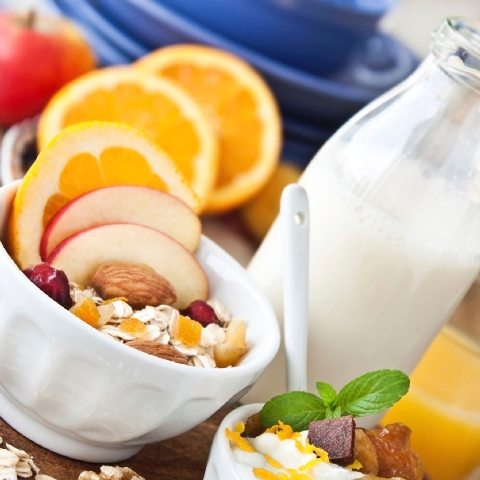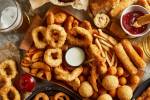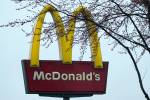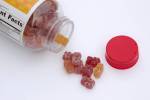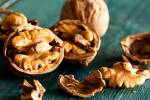Want to transform your life? Eat your breakfast, really
If we don’t skip it, many of us are in just underwear when we eat it, often incapable of much more than grunts and groans, with breath that not even a mother can love.
It is frequently a solitary occasion, one brought about by a transitional period of grogginess upon awakening that psychologists have noted is associated for some with a “sleep inertia” phenomenon, a grouchiness that caused Winston Churchill to observe: “My wife and I tried to breakfast together, but we had to stop or our marriage would have been wrecked.”
Breakfast. Though seldom remembered with the kind of romantic fondness that a dinner of chateaubriand for two with a bottle of cabernet sauvignon can engender — red wine with Cheerios is more likely to be a catalyst for a gag reflex rather than a first kiss — breakfast is studied and analyzed and discussed by scientists and doctors with a hunger not often seen in the world of nutritional science.
Although an Internet search found nearly 160 breakfast studies since 1996, earlier in July we saw blanket media coverage of yet another product of that breakfast research hunger: Scientists with the Harvard School of Public Health released findings that showed that men aged 45 to 82 who regularly skipped breakfast demonstrated a 27 percent increase in risk of having a heart attack compared with those who ate breakfast daily.
So why does breakfast, which studies have shown that more than 20 percent of people skip daily, receive so much attention?
Given what follows breakfast in the astounding everyday human experience perhaps the more appropriate question is: How could it not continually attract scientific inquiry? It is a meal that seemingly can help transform a life.
Breakfast, notes Dr. Ranjit Makar, an assistant professor of medicine at the University of Nevada School of Medicine, is about breaking the eight- to 12-hour fasts people have been on since the last meal they had the day before, an astonishingly large gap considering during the day people normally eat about every four hours.
How should the most complex organism on planet Earth — the human being — refuel?
That question alone is the subject of countless articles and papers and provokes advice from both moms and Nobel Prize winners.
What we often forget is that while we sleep, while we fast, our body and brain are still hard at work. Muscles rebuild themselves, food is digested, heart and lungs continue to operate. The brain, busy processing data collected throughout the day, oversees the entire complex operation, burning up a huge amount of fuel in the form of glucose.
So, when you stagger out of bed in the morning, your brain and body are at a massive caloric deficit.
To not refuel in a healthful fashion, or to skip breakfast altogether and to continue to fast, Makar said, is an invitation to throw your body into distress.
“From what we know, it doesn’t make sense not to eat a healthy breakfast,” Makar says.
Studies have consistently shown that people who skip breakfast — researchers say fasting is a stressful state for the body — generally eat larger, more calorically heavy meals later in the day, often late into the night, to compensate for the lack of an early morning meal, behavior associated with high blood pressure, obesity and diabetes.
What Leah Cahill and her Harvard team have found in their new study is that skipping breakfast is linked to coronary heart disease. The body has fewer hours in the day to process heavy foods, leading to higher levels of blood sugars and more frequent and intense insulin spikes.
Though men were studied, researchers believe the results will hold for women as well.
“I think with the attention this study has gotten, people will take notice more than before,” Makar says.
Cahill agrees, largely because men and women have a good sense of the toll heart disease takes.
The latest statistics show that heart disease is the leading cause of death for both men and women. Every year, about 715,000 Americans have a heart attack.
About 600,000 people die from heart disease in the United States each year, that’s 1 out of every 4 deaths.
Although there is good evidence that a simple breakfast can help fight off heart disease, studies also suggest breakfast stokes metabolism, thwarts late-night grazing, heightens concentration, strengthens the immune system, lowers cholesterol, promotes weight loss, leads to better sex and fosters a longer life.
A study published last year in England found that eating breakfast dramatically improved people’s mental performance. More than 60 percent of test subjects showed improvements in English and mathematics tests after eating breakfast. Also, hand-eye coordination was improved, with breakfast eaters also showing a reduction in anxiety levels when faced with stressful situations.
(Breakfast helps dogs, too. A 2012 study from the University of Kentucky found that canines search for hidden items more accurately after they’ve eaten breakfast.)
In the most recent Harvard study, which was published in Circulation magazine, about 13 percent of the 27,000 men studied during a 16-year period suffered fatal or nonfatal heart attacks, including 171 who had said they regularly skipped breakfast. That boils down to more than 7 percent of the men who skipped breakfast suffering heart attacks, compared with nearly 6 percent of those who ate breakfast.
Other details of the study showed that the men who skipped breakfast were likelier to be single, smokers, drink more alcohol, work full time and be less physically active.
If you missed reports on the breakfast study in the Las Vegas Review-Journal, you could have read about it in The New York Times or London Times, heard commentary about it on NPR or the BBC, watched doctors interviewed about it on PBS, CNN, NBC, ABC, CBS.
It is that kind of publicity about the importance of breakfast in recent years that’s caused entrepreneurs to sell breakfast bra mugs — “Wanna have a spoonful of bran flakes outta my left cup?” — and to market “Sexcereal,” which promises to boost your libido.
The breakfasts nutritionists are talking about, however, aren’t the latest fads and often aren’t found in a fast-food restaurant drive-thru or at a greasy spoon that serves its lathered-in-butter breakfast special of three eggs, bacon, sausage, toast and hash browns for $7.95.
Still, meat with breakfast isn’t seen as distressing by scientists as vegetarian Sylvester Graham, of cracker fame, saw it in the 1800s. He theorized a morning meal that included meat provoked the “baser properties,” what he called “the vice” but is more commonly referred to as masturbation (he did not use the scientific method to buttress his theory).
Unscientific theories aside, Miriam Een, a registered dietitian with the University of Nevada School of Medicine, can rattle off healthful breakfasts nearly more quickly than you can write them down.
Critical to healthful breakfasts, she says, is selecting three foods from the five major food groups: fruits, dairy, vegetables, grains and protein.
“They can be put together quickly without spending a lot of time,” she says.
That so much of what scientists and dietitians discuss about the importance of breakfast smacks of what many mothers have said for years isn’t lost on Een, a mother herself.
“Mothers’ intuition is often right,” she says, stressing that science helps that intuition along with more wholesome food choices.
So are people foolish if they don’t eat breakfast?
“I don’t want to call people foolish,” Harvard’s Cahill says, laughing. “Let’s just say I think breakfast is an easy thing people can do to help with a healthy lifestyle.”
Contact reporter Paul Harasim at
pharasim@reviewjournal.com or 702-387-2908.
START OFF RIGHT
Here are healthful breakfast menus that Miriam Een, a registered dietitian at the University of Nevada School of Medicine, recommends. All can be modified with gluten-free, lactose-free or casein-free products to fit those dietary needs.
Standard breakfast: whole-grain cereal (cold or hot), 1 percent or skim milk, raisins (or other fruit dry, fresh or frozen), walnuts or other nut (optional), cinnamon (optional)
"On the road" breakfast: orange or tangerine (or other fruit), breakfast bar or cereal bar, yogurt (in a tube or container) or cup of 1 percent or skim milk
A la carte carry-along breakfast: hard-boiled egg, low-fat, whole-grain muffin or bagel, banana (or other fruit), tube of yogurt (optional)
"Superquick, minimal planning, portion-control" breakfast: a meal replacement (energy bar or beverage along the lines of Carnation instant breakfast or Slim Fast beverage)
Breakfast sandwich: whole-grain English muffin with poached egg, slice of lean ham, slice of cheese (any combination), melon pieces (or other fruit)
Breakfast sandwich No. 2: toast (or waffle) with peanut butter and low-sugar preserves, kiwi (or other fruit), 1 percent or skim milk (optional)
Breakfast burrito: whole-grain tortilla filled with scrambled egg, cheese, black beans, salsa, other items to taste, mango (or other fruit)
Yogurt parfait: yogurt (low-fat, lite, plain), cut-up fruit such bananas, melons, berries, low-fat granola, nuts (optional)
Weekend special breakfast: whole-grain pancakes or waffles (optional blueberry) topped with any combination of fresh or frozen berries, yogurt, warm applesauce, or syrup (skip the butter or margarine), scrambled or fried eggs (use pan spray rather than butter or margarine in the pan), 1 percent or skim milk, juice or nectar



